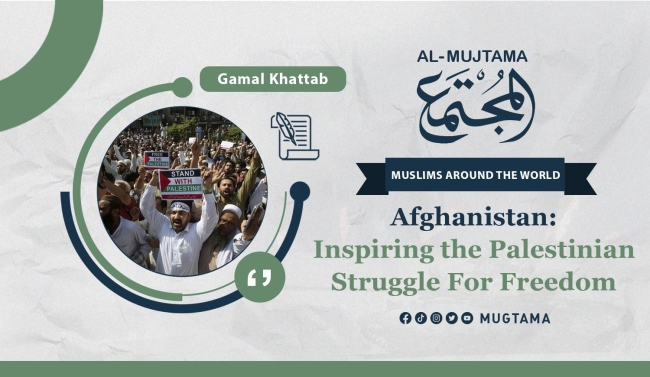Afghanistan: Inspiring the Palestinian Struggle for Freedom Featured
International Court of Justice Hearings
The recent hearings at the International Court of Justice, which discussed the Israeli genocide in Gaza, have had a significant impact. These sessions, requested by South Africa, have brought attention to the Palestinian cause and influenced world public opinion.
Despite being ignored by major Western media outlets, neutral news channels like Al Jazeera and TRT World broadcasted the sessions, gaining attention on social media.
Israel on Trial
Israel, which has tried to justify its policies and crimes for 75 years, is now facing trial for committing genocide. The United States, Israel's main partner and supporter, is expected to intervene if the International Court declares Israel guilty. However, this trial has already put Israel in a constant defensive position, which is a significant gain for the Palestinian cause. Even if the United States uses its veto power to protect Israel in the Security Council, the issue can still be brought to the United Nations General Assembly, where a request to suspend Israel's membership can be made.
South Africa's Bold Position
South Africa, a country where Muslims make up less than 2% of the population, filed the case against Israel. This challenges the reductionist Israeli narrative that presents the Palestinian issue as a conflict between Islam and the modern Christian West. Instead, it highlights the global humanitarian issue at hand. While it is disappointing that other Arab and Islamic countries did not take this initiative, South Africa's stance is commendable and embarrassing for Israel, as it uproots the myths on which Israel was founded.
Similarities with Afghanistan
When comparing the situation in Afghanistan, we can see striking similarities. Just like the Palestinians, the Afghan people have shown strong resistance against occupation. After years of Russian invasion and a twenty-year American occupation, the Afghan people have endured immense suffering. The United States has caused the deaths of at least 500,000 Afghan civilians and combatants, destroyed cities, and labeled their resistance as terrorism. However, the Afghan people persevered and finally forced the occupiers out two and a half years ago.
Afghanistan's Progress
There is reason for hope in Afghanistan. For the first time in 45 years, the country is governed by its own people. This has brought stability and security that has been absent for decades. The government in Kabul now controls the entire country, and there is hope for a brighter future.
It is important not to fall for stereotypes and misconceptions about the Taliban. The Afghan people, in their generosity and welcoming culture, do not see the Taliban as a foreign entity. Instead, they view the movement as close to their own spirit and culture.
Afghan Hospitality
Contrary to the fortified facilities built by the occupiers, the Afghan people have a warm and generous culture. They welcome guests with open hearts and homes, eager to share their experiences and the impact of the occupation.
The stark contrast between the occupiers' isolation behind walls and the Afghan people's openness highlights the occupiers' failure to understand Afghan society. Those who truly want to understand can visit Kabul and learn firsthand.


